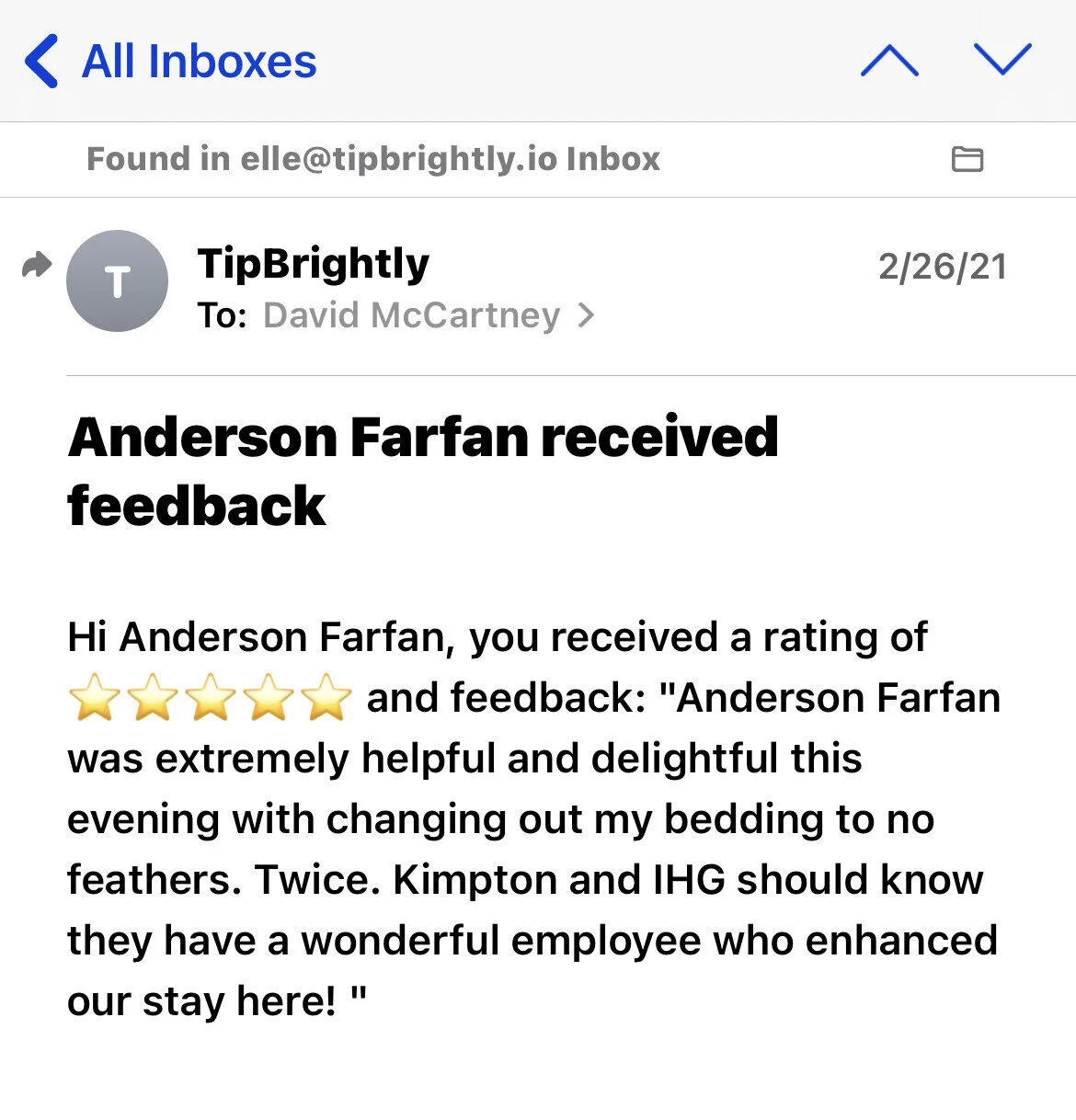No Cash To Tip? Why Cashless Tipping Matters Now More Than Ever
Have you ever wanted to leave a tip but didn't have cash?
We've all been there. It's awkward. You feel guilty. It's a pain when want to express our appreciation through a tip, only to find that thwarted by not having cash. While this may be inconvenient for us, the impact means a lot more to that employee and their employer. Each time we reach into our purse or wallet and come up empty is a lost opportunity for earnings for a tipped worker in the service industry. The loss of income decreases morale, increases attritions, lowers motivation to deliver quality service.
I believe we can change that - one tip and one employee at a time - through cashless tipping. By optimizing existing mobile payments technology, we can transform tipping from a payment transaction to a warm act of appreciation - one that provides benefits all stakeholders in the service system.
In 2017, the New York Times published an article: “Tipping May Be the Norm, But Not for Housekeepers." The article described the lack of awareness among hotel guests about tipping - whether to tip and how much to tip.
The tip doesn’t have to be big — $1 to $5, says the American Hotel and Lodging Association. But fewer than a third of hotel guests leave any money for the housekeepers. The hotel association publishes a gratuity guide on its website that offers suggestions for tipping everyone from valet attendants to bellhops. But why are housekeepers often forgotten?
According to the New York Times, “A common explanation is that they are out of sight and, therefore, out of mind — that travelers are likely to tip only employees they directly interact with. But another cause may be a simple lack of awareness....As a general rule, people just don’t know they’re supposed to tip,” said Shane C. Blum, an associate professor of hospitality and retail management at Texas Tech University."
You are looking at the friendly face of Farfan Anderson, a room attendant at the Hotel Arras, a beautiful boutique hotel in Asheville, North Carolina. Anderson's job is to deliver special items to the room, a practice that skyrocketed due to COVID-19 as hotels are no longer able to keep many amenities in the room.
David McCartney, an award-winning hotelier for the McKibbon Hospitality Group hired Anderson after observing his friendly and helpful manner on a construction project for the hotel. He brought Anderson onto his team of housekeeping attendants.
Last month Farfan received tips that averaged $7 each, tripling the amount that he would have expected. This amount is so significant that he increased his daily earnings by nearly 10%. On top of that, his guests gave him an average rating of 5 out of 5 stars. 80% of those guests left him positive feedback, appreciating him for his service. This was among them:
So, Kimpton Hotels & Restaurants and @IHG Hotels and Resorts are you reading?
As with cashless tipping, there remains no mechanism for companies to know who among their employees is providing the kind of outstanding service that leads to customer loyalty. Because tipping has been so transparent for so long, little is know about what motivates a guest to leave a tip and take the time to send feedback. We know here that this guest sent this this message through her phone, seconds after sending Anderson a generous tip.
So how does cashless tipping make that happen for Anderson? TipBrightly optimizes existing mobile payments technology to make tipping seamless and easy. We've taken the friction out, enabling anyone with a mobile phone to scan a QR code and send a tip in a way that is faster and better than cash.
At Hotel Arras, McCartney provides employees with tipping cards, akin to business cards, only that these provide instructions on how to leave a cashless tip. When a guest scans the QR code, the attendant's name appears. This allows the guest to confirm that the tip will be received by this employee. Processed by Stripe, the payment is sent directly to the employee and deposited into their bank account the next day.
All it takes is for a business to sign up its employees, provide them with a QR code, and integrate that into signage. The value for employers is undeniable: By increasing their employees earnings they can decrease turnover. In an industry where employee attrition is can top 70% and the cost to replace an employee can be as high as $6,000, a business with tipped employees would be a penny wise and pound foolish not to have a cashless tipping option in place.
We're seeing great results. McCartney explained that staff are seeing double the frequency of tipping, because the signage increasing guests' awareness of tipping. We’re proud that our solution is helping to increase wages in this significant way, motivating employees to do their best work and to stay. We're happy that we can have a direct impact on their financial health.
The businesses that work with us - our customers - have three things in common:
They value their present and future employees and are willing to invest to keep them.
They care about their financial health and recognize that tips are important to that.
They are first movers in their industry in seeking solutions for their industry, and are unafraid to experiment, iterate, and take risks in asking customers to change behavior around tipping.
As for Anderson Farfan and the millions of workers like him who deliver, prepare, take care, and do things for us - day in and day out, night and day, every day of the year, my vision is that their outstanding work and service will be recognized -- “liked” “celebrated” and “loved” just like the posts we see in our LinkedIn feeds.



